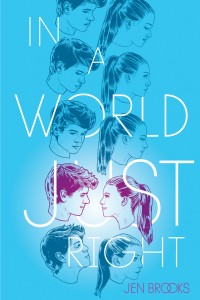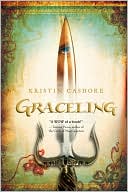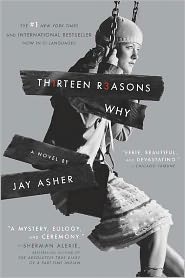Thirteen Reasons Why
Great book endings
So I’m thinking about book endings. I mean, I’m thinking about what makes a book ending GREAT.
Because I’m taking a pause in my writing, I’ve been catching up on reading. (I don’t seem to be able to read and write prolifically at the same time.) I’ve been struck by how much, or how little, I love the endings of some of the novels I’m reading, and I can’t help but be insecure about the impact of the endings of the stories I’ve written.
I’ve been taught that the ending to a novel should deliver the inevitable in a way the reader does not expect. To do this, a story must be meticulously plotted with characters’ actions carefully bringing about the ending. Some novels I’ve read this year seem to be plotted correctly, to build sufficiently to the ending, yet somehow I don’t get the big bang out them that I crave. In truth, very rarely do I get a true feeling of completion, of catharsis, of fulfillment when I read a novel, and although I chalk that up to my impossibly high standards (after all, I do LIKE a lot of books, but here I’m talking about LOVING a book), I think I can pinpoint a couple of reasons I am disappointed by endings.
Ironically, my disappointment in an ending is proportional to my faith in an author’s skill. If I’m reading a book and find myself entranced by its language, its concept, its world-building; if I find myself excited about the thematic complexity; if I say to myself, Holy crap, this author knows what he/she is doing; then I ratchet up my expectations for a jaw-dropping ending. This is probably not fair since I tolerate much less in an ending when the beginning and middle don’t foster such high expectations in me. I can use the example here of TVs Lost and Battlestar Galactica. I adore both stories (own both on DVD), and I like both endings, but ultimately I don’t feel those endings exploited the full potential that was there throughout.
Another way an ending can disappoint me is if I feel essentially unchanged by what the author ultimately has to say. I want a book to have educated me or have made me think about something in a new way. Again, I can get excited during the beginning and middle of a book as I contemplate the premise or the message I think is coming, and when nothing of earth-shattering significance shows up in the conclusion . . . disappointment.
Mostly I am disappointed in an ending if I can sit there with the book closed and think about how I might have made the ending better.
I know I’ve loved the ending when I want to sit there and savor what happened, just the way it did.
It’s hard to talk about specific endings that I’ve loved because doing so obviously creates spoilers, but here I offer, by way of example, a brief list of books I’ve read that have wholly satisfied me with their endings. You’ll likely recognize all of them. The first thing I noticed upon reflection is that several are series, and I think this says something about what I need in complexity in order to feel I’ve had a satisfying pay-off.
The Hyperion Cantos by Dan Simmons
The Harry Potter series by J.K. Rowling
Ender’s Game by Orson Scott Card
The His Dark Materials trilogy by Philip Pullman
Thirteen Reasons Why by Jay Asher
The Time Traveler’s Wife by Audrey Niffenegger
The Book Thief by Markus Zusak
To the Lighthouse by Virginia Woolf (my favorite book ever)
What do you need in order to LOVE a book’s ending? What ultimately disappoints you about endings? What are some books that have had the greatest pay-off for you? (Be warned I will use your advice to revise my own stories’ endings!)
Speak up:
comment| TAGS:
Ender's Game, endings, Harry Potter, His Dark Materials, Hyperion, The Book Thief, The Time Traveler's Wife, Thirteen Reasons Why, To the LighthouseWriting what you read?
Now that year’s end has me reviewing my list of books read in 2011, I’m counting all my excuses for not reading more than I wanted. Left to my own devices, I’m confident I would join the 100+ club for the year, but alas . . .
Graduate school is one excuse, since I spent the first six months finishing an MFA. (Of course part of that degree actually required me to read books, so that excuse is a little thin.) There is my young son, who goes to bed late at night, so I don’t often get to read in bed before sleep. My biggest excuse, though, is that I spent more time writing than in any previous year.
Writing and reading go hand in hand for a lot of writers, but for me this isn’t the case. My writing is affected by the style and content of what I read, so if I’m looking for inspiration, for encouragement, for a jump start, nothing is better than reading a good book. (I’ve noted in a previous entry that Graceling and Thirteen Reasons Why recently turned out to be good choices for me.) Once I’m on a roll writing, though, I find that reading interferes with my writing. It inhibits my voice and ideas because my head becomes filled with somebody else’s voice and ideas.
This is not to say I don’t read at all when I write. It means that certain parts of the writing process make me hesitant to read. Brainstorming, outlining, and revising are great times for me to be reading good fiction. When I’m actually producing pages, though, it’s better for me to abstain from reading or to read something non-fiction. Today I started a non-fiction book on medieval England.
How are reading and writing related for you? Do you find it hard to read while working on your own piece? Do you find certain books help you along?
Speak up:
comment| TAGS:
excuses, Graceling, Thirteen Reasons Why, writing processGraceling and Thirteen Reasons Why
Have you ever read a book and thought, “That’s what I’m trying to accomplish with my writing.” I can’t recall how many times I’ve felt this way after reading a book, but I can name two times in recent memory: reading Kristin Cashore’s Graceling (which I’ve already mentioned in a previous post) and reading Jay Asher’s Thirteen Reasons Why, both YA (young adult) novels.
I can’t remember how I came across Graceling, but I think it might have been by reading Calico Reaction’s review. Graceling has a medieval-ish fantasy setting and is the story of Katsa, a young woman with a “grace” or special talent. Her grace is to kill, and her uncle, the king, forces her to be his thug by sending her against his enemies. The story follows Katsa as she rebels against her uncle and undertakes an epic journey to save the kingdoms from an evil graceling much more powerful than she. Thought-provoking questions about power, its use and abuse, pervade the story, as does the adolescent’s search for identity. Katsa must discover the true nature of her grace and make a decision on how she is going to use it. Of course, as with most good YA, there’s also a compelling love story.
I do remember how Thirteen Reasons Why came to my attention. My grad school program requires all members to read a common book for each residency. One term, the book chosen was Thirteen Reasons Why. Although I didn’t attend that particular residency, the book sounded intriguing, and I decided to pick it up. Thirteen Reasons Why is set in modern day (and is mainstream, not fantasy) and follows Clay Jensen, a high school student whose classmate, Hannah Baker, committed suicide only weeks before. He comes home one day to find a set of audiotapes in a box. He quickly learns that the tapes were recorded by Hannah before she died and are her account of the thirteen reasons why she committed suicide. Clay has received the tapes because his name is in them.
Thirteen Reasons Why is told from Clay’s point of view, but his thoughts and actions as he listens to the tapes are interwoven with Hannah’s narrative. The story is heart-wrenching, and by the end the message is abundantly clearpeople need to think about their actions and need to work on performing kindnesses because you never know how another person might be suffering. Clay, a boy most parents would love to call “son,” is a good character to illustrate the message.
As far as my writing goes, I consider both of these books inspirations. Graceling is a YA book, but it’s tone is more straight fantasy than YA and the hefty questions of power are not typical YA fodder, so it was my inspiration for the very difficult task of completing my revision of Wishstone for a YA audience. Thirteen Reasons Why gave me some confidence that I can write a novel set in modern day. Since my first novel is set in outer space thousands of years in the future and my second novel is set in ancient Greece thousands of years in the past, I was doubting I had the skills to pull off modern day YA. I didn’t think a character I would enjoy spending a novel writing would appeal to a YA audience. Sometimes I feel YA characters in books are portrayed as the adults who write YA tend to see them, rather than how they are. I’m frequently dismayed by how YA characters in other media are portrayed as caricatures. Clay Jensen, however, is a thoughtful character who, I feel, has all the appropriate reactions to what he hears on Hannah’s tapes. He felt much more real to me than any YA character I’ve encountered in a long time.
Moral of the story: my current project is a YA fantasy set in modern day. I’m sure there’ll be updates . . .


